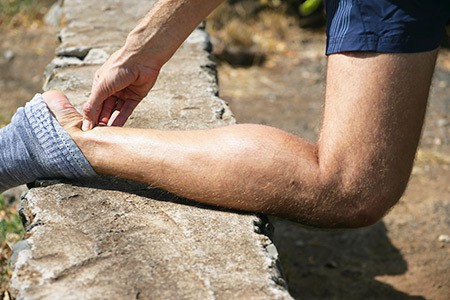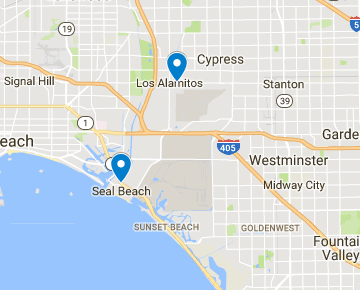Do I Have Achilles Tendinitis?

In Greek mythology, Achilles was a powerful and (almost) invincible warrior. His only weakness was the only part of his body that was not dipped in the River Styx, his heel. This was his vulnerability, and ultimate demise.
The Achilles tendon, named for this Greek hero, is the largest tendon in the body, connecting your calf muscle to your heel bone. It has great significance in our daily lives, allowing us to be agile and mobile. It is fitting, then, that injury to this tendon would cause great issue, leaving us vulnerable to pain and discomfort.
The Achilles is used so often that there it is very likely to encounter issues. Natural wear and tear can cause pain from inflammation. After a while, the tissue can weaken and even begin to degenerate. This can be made worse when there is a sudden increase in activity (weekend sports or attempting a stunt without preparation), improper gait, or an irritating heel spur (extra bone growth). Folks with Achilles Tendinitis will feel pain, show symptoms of inflammation or swelling, and possibly have stiffness in the lower calf.
If you feel that you may have Achilles Tendinitis, it is important you see your friendly podiatrists sooner than later. Our board-certified podiatrists, Dr. Douglas H. Richie, Dr. Jeremy L. Cook, Dr. Faye E. Izadi can assess your symptoms to give you the right diagnosis. After a direct touch assessment to the Achilles tendon, you may need an X-ray, Ultrasound, and/or MRI to figure out exactly what is going on and what the right treatment would be.
The following are possible treatment options that may be recommended:
- For mild symptoms, try to treat at home with rest, massage, and icing the area for relief. You can use a tube or foam roller.
- Pain and anti-inflammatory medications, such as NSAIDs (e.g. ibuprofen or naproxen).
- Physical therapy may be prescribed to help strengthen and stretch the muscles around the Achilles. This can help support the weakened ankle.
- Custom orthotic inserts and shoes may help to provide support to the arches and heel to prevent tightness and overstretching by the Achilles tendon. It can also correct any issue in your posture or gait.
- Wear a boot to restrict further movement and irritation to the tendon.
- Reparative surgery will be required for severe cases that do not respond to other treatments.
Concerned about your ankle? Make an appointment at Alamitos-Seal Beach Podiatry Group to see us at one of our Seal Beach, CA and Los Alamitos, CA offices in Orange County. We look forward to helping you overcome your Achilles problem.





